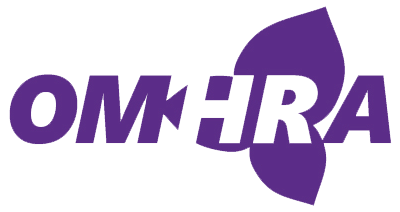
Take a close look at the majority of your municipality’s work team members – especially those that are mid-career. They are millennials that fill your middle management and some executive roles, responsible for other people’s success and livelihoods. These people have established families, mortgages, and other debts, and are trying to make significant contributions to their retirement plans. The further they are into their career, the harder it becomes for them to walk away – and the more they may question the meaning and purpose of their work and their worth. It used to be known as a mid-life crisis.
In today’s working world, helping employees with financial, family, physical and mental health support is one of the most important priorities for helping to alleviate work-related stress and promote a psychologically safe workplace. While much focus has been placed on young professionals and what they are looking for from a workplace, perhaps not enough attention is being paid to those more established employees working 30-40 hours per week for 15 or 20 years that still have another 15 or 20 (or more) to go. In fact, psychological health problems affect your mid-career workers the most.
Reengaging support with health insurance
Mid-career employees often experience energy depletion because of overwhelming demands and conflicting feelings of purpose. The challenge for them is finding both the mental energy and time to look at objective options. They live in the details of their daily experiences and require real support. This is where health insurance can be a wonderful resource to re-engage them in their own personal value and the value of their work benefits by providing
Relief from financial strain by providing the means to obtain prescription drugs, like those essential for management of diabetes and high blood pressure. Health benefits can cover costs for a wide variety of prescription drugs for employees and their families to help with out-of-pocket costs that can add up to hundreds and even thousands of dollars each year.
Access to medical professionals for video consultations, eliminating the obstacles of travel and waiting room time delays can help shorten the cycle between them identifying a health problem and implementing a clinical solution, making taking care of their health more convenient. They can even consider using a wider range of healthcare services without having to travel to a healthcare facility, like talking to a dietician.
Support from trained, professional coaches can be a wonderful resource for emotional and mental health. While only 23% of employees may feel comfortable approaching their employer about a psychological health problem, health insurance can provide private, discrete cognitive behavioural support and remote therapy accessible in a timely and financially viable manner.
Mindfulness tools delivered through an insurance program can help individuals live a more satisfied life in the present and adjust their orientation to become less driven by ‘what if,’ helping to reduce their anxiety about goals yet to be achieved and revive their enjoyment of their life and work.
Tools to address non-work-related illnesses or chronic conditions can help reduce anxiety at work. As your team ages, they appreciate extended health care benefits like physiotherapy to help to cope with chronic conditions like arthritis or a back injury so they can best manage their healthcare and be able to work effectively and look forward to a longer working career.
Apps and online guidance on health strategies with easily available trusted resources for employees to gather data to make informed decisions and even participate in incentivized programs guiding them on next steps for better physical and mental health management.
Refreshing your organization’s focus on the features health insurance provides can boost employee satisfaction, engagement, and productivity while also reducing out-of-pocket costs for employees and lost work time. Sharing good communication about health insurance features to help mid-career employees develop an understanding of the resources available and connect to them. It is a practical strategy to improve workplace psychological health to assist them in coping with the normal stresses of life and deal with their daily challenges.
If the health insurance benefits you provide has gaps, you can inform and connect your valuable employees to options for individual health plan coverage to fill their needs, and it works for contract workers who do not qualify for your group coverage.
Presented by

Archives
Categories
- Attraction and Recruitment
- Benefits
- Celebrating Success and Recognition
- Change Management
- Conflict Resolution and Coaching
- Culture
- Diversity, Equity and Inclusion
- Emotional Intelligence
- Employee Engagement
- Employee Performance
- Labour Disruption
- Mentoring
- OMHRA activities
- OMHRA Events
- Psychological health and safety of the HR professional
- Recruitment
- Recruitment and Retention
- Retention
- Uncategorized
- Unique ideas for recruiting in a tight job market
- Wellness
Recent Posts
- How Leadership Development Coaching Provides Better Outcomes
- Better Leadership: Focus on a Coach Approach
- Creating a Psychologically Safe Workplace
- Group Health Insurance – The Impact of Preferred Pharmacy Networks on Employees’ Mental Health
- Provide Real Support For Your Mid-Career Team’s Psychological Resilience

